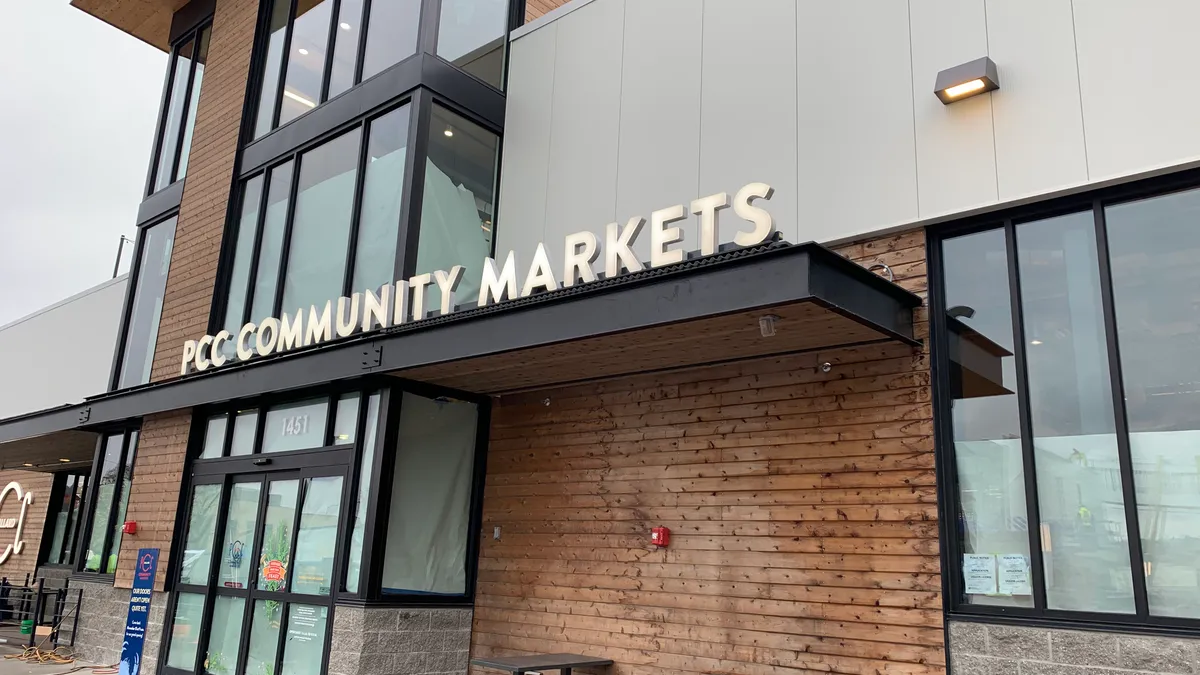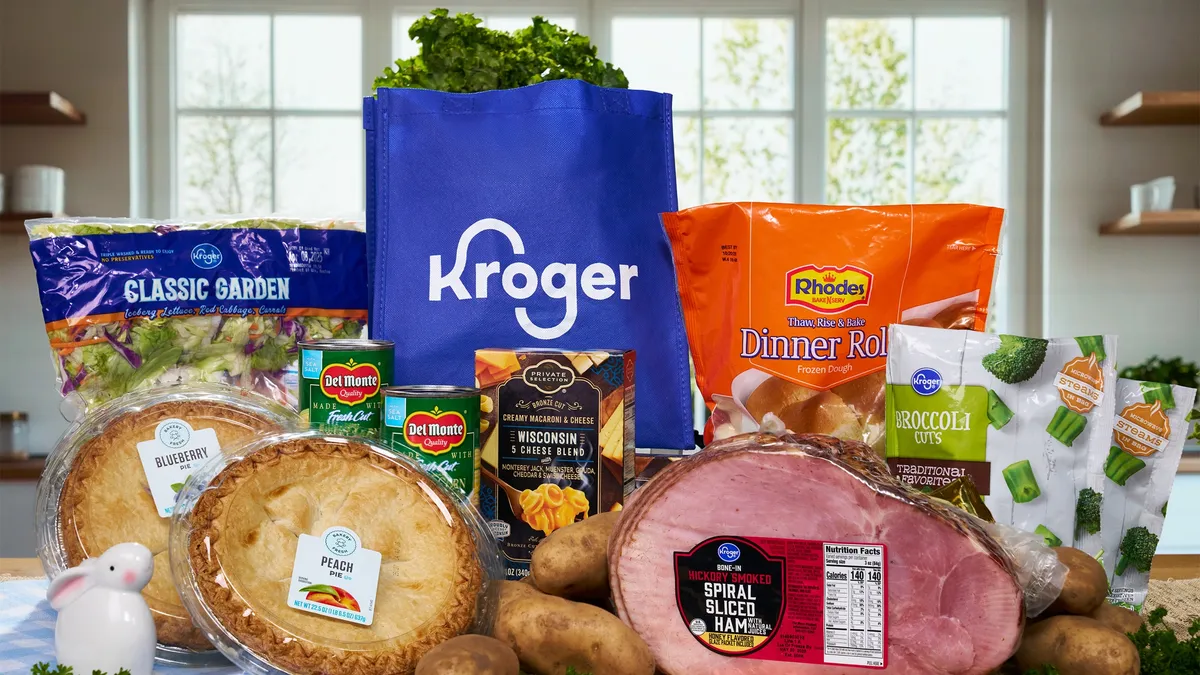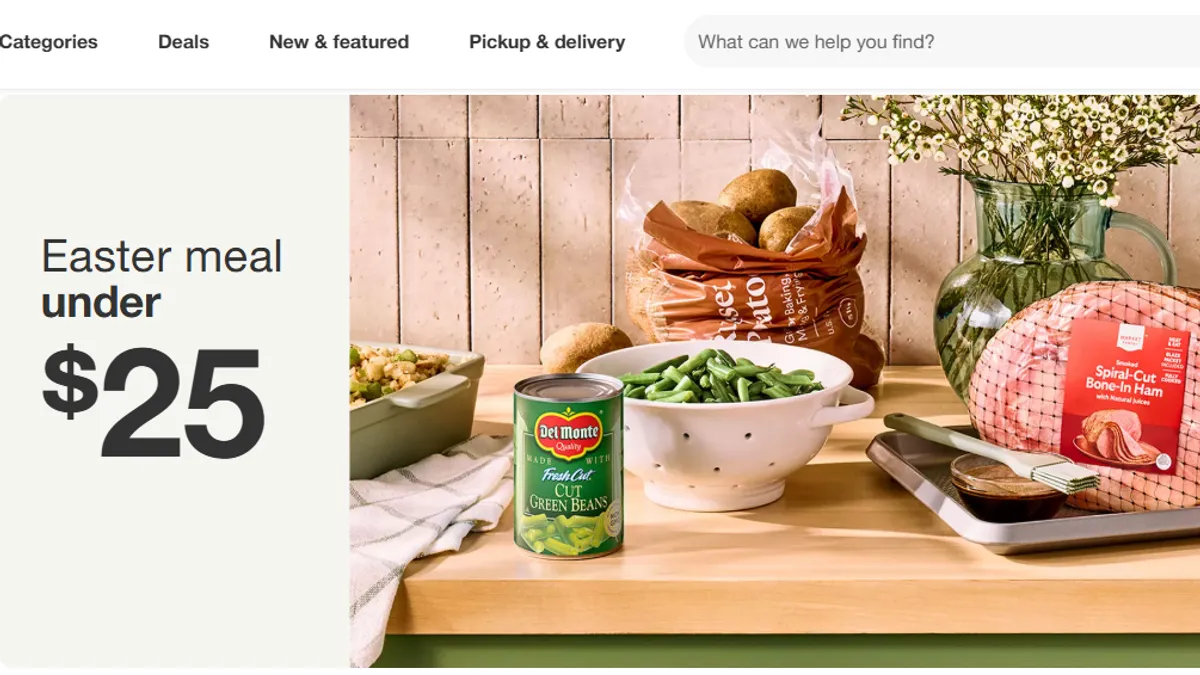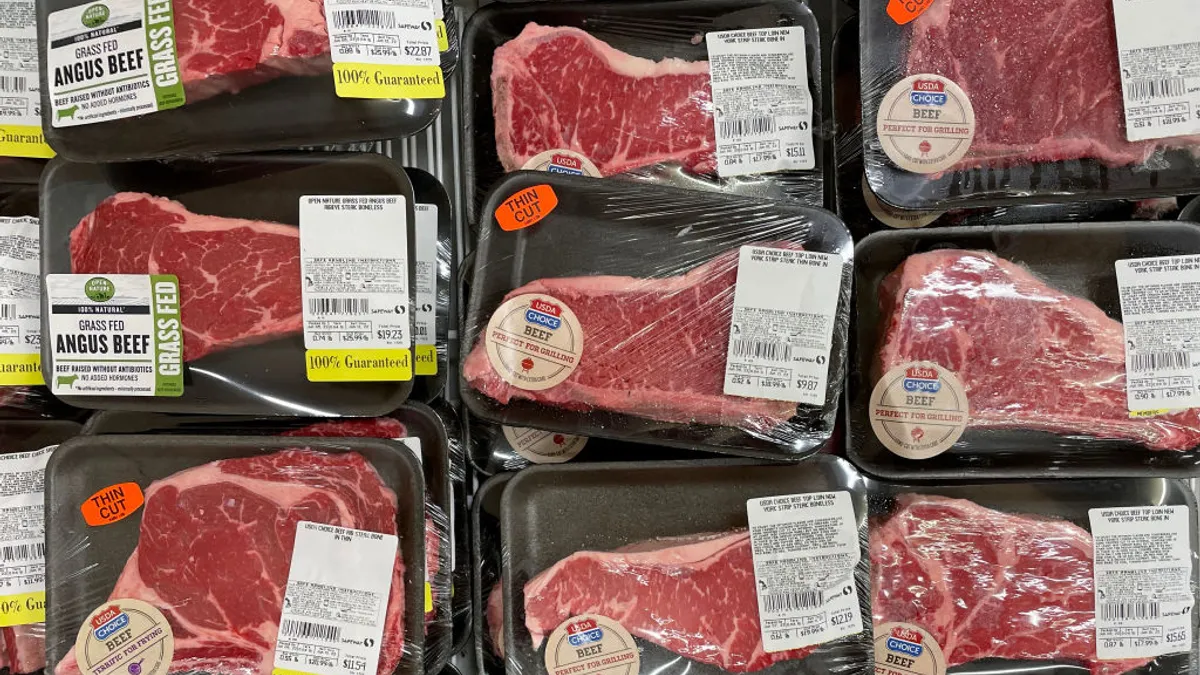There aren't many grocers willing to open across the street from Trader Joe's. Yet that's just what PCC Community Markets is doing with its latest location in Seattle's Ballard neighborhood, opening Wednesday.
What makes the cooperative confident it can outmatch its discount-priced rival? Well for starters, it has a giant octopus.
Although the imposing sea-dweller may seem like an attempt to one-up its competitor's nautical theme, PCC's CEO Cate Hardy insists the art installation and other flourishes throughout the store are meant to honor Ballard's maritime history. It's a focus that extends to the chain's first-ever restaurant, where customers can get fresh steamed clams or a bowl of cioppino to go along with pints of local beer.
Beyond its seafaring theme, PCC's newest store features all the hallmarks of the specialty chain, including a trove of local products, fresh-made meals, a large bulk selection and sustainable building design.
The store is PCC’s 13th and the second opening since its October debut in West Seattle. That's a rapid pace for the local chain, but Hardy insists PCC is focused on steady, careful expansion, with plans to open two stores next year and one in 2021. And while other specialty chains have taken to hopscotching from one U.S. city to the next, PCC has no immediate plans to move beyond its Puget Sound enclave, Hardy said.
"Center store is not the center of our store"
One way to differentiate from Trader Joe's is to focus on service counters, store-made meals and hot bars. PCC puts a food-hall style array at the center of its Ballard market, flanked by its open kitchen where workers assemble more than 150 different items ranging from deli sides to sandwiches and chopped salads.
"The traditional center store is not the center of our store," Hardy said, noting that customers appreciate the open-air layout and the ability to see employees doing prep work.
A living building
PCC says it's the first grocer in the country to pursue certification through the Living Building Challenge — "the world's most rigorous green building standard," according to the chain. For the Ballard store, that meant relying on reclaimed materials for fixtures like produce bins, installing stringently efficient refrigeration systems and putting in skylights and large windows to usher in natural light.
There are strict requirements for chemicals used in all of its building materials. Hardy said PCC couldn't find a fire extinguisher box that met LBC standards, so they fashioned their own.
Clams, ahoy!
PCC's executive chef Lynne Vea designed the menu for the store's seafood restaurant. The focus is on fresh ingredients, with clams steamed for three minutes in silver kettles right on the spot. Shoppers order at the bar and can dine at one of around a dozen tables, or take their food up to a rooftop seating space.
Hardy said the restaurant is an experiment for PCC. If it performs well, the company may build another one, or even explore a different concept. The focus is on remaining flexible and anticipating its shoppers' demands.
"We like to think of it as we're getting out ahead and then bringing them along with us," she said.
Produce at the "heart" of it all
High-quality local and organic produce is a calling card for PCC. "It's at the heart of what we do," Hardy said. The Ballard store also features unique selections like organic Thai limes and a value-added case that's adjacent to the prep area where workers are busy slicing and cubing.
Shoppers can use traditional produce bags or opt for a reusable bag PCC sells from a display next to the department.
Compostable packaging
PCC recently unveiled a logo indicating compostable packaging. The retailer plans to fully convert all of its deli packaging, including lids, straws, cups and bins, to compostable options by 2022. So far, it says it's 80% of the way there — and the process hasn't been easy.
Bulk leads grocery sales
Bulk foods is the top-selling grocery category for PCC, and its newest store offers dozens of gravity bins filled with seeds, cereals, nuts and dried fruit. There's also bulk body care selections, spices, a water filling station and nut butter dispensers.
Private label growth
PCC offers private label in staples like coffee, milk and eggs. When it enters a category, Hardy says, it quickly becomes the top seller. PCC brand coffee, made by Tony's, a roaster 90 miles north of Seattle in Bellingham, debuted in 2016 and now accounts for 30% of category sales.
Next year, PCC plans to introduce eight new private label products.
Correction: A previous version of this story misstated PCC's expansion plans and details about the Living Building Challenge. The company plans to open one store in 2021. Also, beauty care standards do not fall under the LBC's purview, and PCC is currently pursuing certification through the program.





















